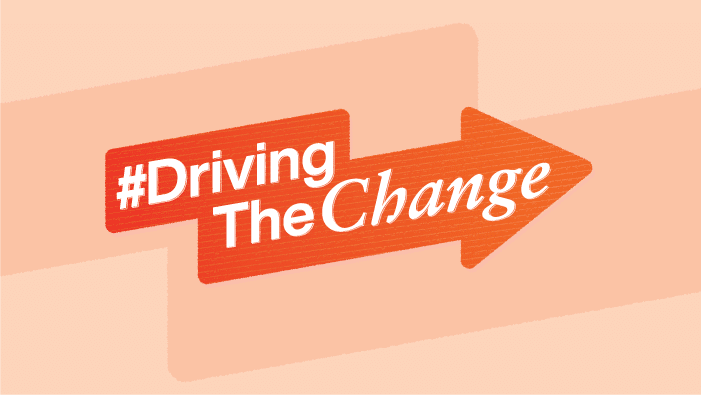Listen to this blog
In today’s fast-paced world, education is evolving. The days when traditional degrees were the only way to build a career are long gone. Now, micro-credentials are stepping into the spotlight. These short, focused courses are giving people a new, flexible way to gain the skills they need for the jobs they want. And it’s not just about learning for the sake of it—micro-credentials are designed with real-world applications in mind. They offer a bridge between education and employment, making it easier for learners to stay competitive in a constantly changing job market.
What’s micro-credentials?
Micro-credentials are short, focused courses designed to help learners acquire specific skills and competencies. Unlike traditional degrees, which may take years to complete, micro-credentials can be earned in a few weeks or months. They provide learners with practical, job-ready skills that are immediately applicable in the workplace.
You may like to know more about the impact of Gen Z on higher education.
Insights from the 2024 Coursera Report: Micro-Credentials in India
According to the Micro-Credentials Impact Report of Coursera, India is embracing micro-credentials in a big way. With input from over 1,000 education leaders across 89 countries (180+ higher education leaders in India), the report highlights the role of micro-credentials in addressing the skill gap. Especially in a country like India, where young professionals are eager to upskill, micro-credentials are proving to be a game changer.
Key insights from the report
- Micro-credentials are a valuable investment: 98% of participating institutions believe that micro-credentials strengthen students’ long-term career outcomes.
- Workforce readiness: 95% of higher education leaders agree that micro-credentials prepare students for the demands of the modern workforce.
- Employer appeal: 96% of Indian students recognize the value of Professional Certificates in securing jobs and standing out to employers.
- Hiring advantage: Employers are 85% more likely to hire candidates with Professional Certificates, as they help identify and validate applicants’ skills.
- Meeting employer demands: 96% of Indian higher education leaders agree that micro-credentials equip their institutions to address the specific skills needs of employers, such as project management and data analysis.
- Increased student engagement: 92% of institutions reported that micro-credentials have boosted student engagement and satisfaction.
- Credit-bearing options: 52% of Indian institutions currently offer credit-bearing micro-credentials, and 94% plan to provide such options within the next five years.
- Student preference: 88% of students are more likely to enroll in learning programs that offer academic credit for micro-credentials.
- Future adoption: Indian universities are leading the way in integrating micro-credentials into their programs, with plans for continued expansion in the coming years.
Check out this article on the growing popularity of micro-credentials.
How micro-credentials help Indian education?
As per the Coursera report, let’s find out how micro-credentials will be a useful educational method to address challenges in Indian higher education.
1. Addressing India’s skill gap
India is home to a massive and growing workforce, but there’s a noticeable gap between what people learn in traditional education and the skills needed in today’s jobs—especially in areas like tech, data science, and digital marketing. Micro-credentials are helping to close this gap by offering short, targeted programs that teach in-demand skills. And the best part? They’re flexible enough to fit into the busy lives of working professionals.
2. Universities are adapting
According to the report, 98% of Indian higher education institutions now see micro-credentials as an essential part of their future. Universities are integrating these programs into their curricula because they understand that students need more than just theoretical knowledge—they need practical skills that can be applied immediately in the workforce. This shift is helping graduates move from the classroom to the job market more smoothly than ever before.
3. Employers value micro-credentials
The Coursera report highlights that employers are paying attention to micro-credentials. In today’s competitive job market, these credentials are becoming a key factor in hiring decisions. For employers, micro-credentials signal that a candidate has the specific skills needed to perform a job right away. In India, where competition for skilled jobs is intense, having a micro-credential can give candidates an edge, whether they’re starting a career or making a career shift.
You may like to read how micro-credentials are pioneering the online learning.
Overcoming challenges to micro-credential adoption
As promising as micro-credentials are, there are still challenges when it comes to wider adoption. But with the right strategies, these hurdles can be easily addressed.
1. Raising Awareness
One of the main challenges is that many people still don’t fully understand what micro-credentials are or how they can help. To make them more popular, universities and companies need to spread the word. Students, educators, and employers alike need to understand the value of these programs and how they can fill specific skill gaps.
2. Embracing Change
Let’s be honest, change is always a bit uncomfortable. Some educational institutions are slow to adopt new methods, preferring to stick with traditional degree programs. However, micro-credentials don’t have to replace degrees—they can complement them. With the right support and education for faculty and administrators, these programs can seamlessly fit into existing learning structures.
3. Building Infrastructure
For micro-credentials to thrive, institutions need to invest in strong digital infrastructure. Online platforms must be user-friendly and accessible to a wide range of learners, ensuring that students from all backgrounds can benefit from these flexible learning options.
Get to know the transformative power of online learning.
Micro-credentials and Online Manipal: A partnership for success
One of the leaders in this movement is Online Manipal, which has partnered with Coursera to offer micro-credentials that are designed for today’s learners. By offering industry-recognized programs, they’re helping students build the skills they need to thrive in today’s job market.
- Focused learning: Online Manipal’s micro-credentials zero in on the skills that matter most in the job market. Whether it’s data analytics, project management, or cybersecurity, these courses give learners practical knowledge they can use immediately.
- Career boost: With credentials that are recognized by top employers worldwide, students can confidently showcase their expertise and boost their career prospects.
Apart from Coursera partnerships, universities under Online Manipal offers Postgraduate Certificate Programs in different domains. For example, Manipal Academy of Higher Education (MAHE) is offering 12-month online PGCP in business analytics and supply chain management. Students can earn the certificates from one of the leading institutions in India.
You may be interested in understanding the advantages of online learning for working professionals.
Conclusion
Micro-credentials are more than just another option in education—they represent a fundamental shift in how we learn and build careers. In a world where specific skills are becoming more valuable than ever, micro-credentials provide a clear path to success. They’re flexible, affordable, and tailored to meet the needs of today’s job market.
With partnerships like the one between Online Manipal and Coursera for Campus, students can gain the skills they need to take their careers to the next level. Whether you’re looking to sharpen your existing skills or break into a new field, micro-credentials give you the opportunity to grow and succeed on your terms.
The future of education is here—and it’s built around the learner. So, why wait? Start your journey today with Online Manipal and Coursera, and take the first step toward a brighter, more fulfilling career.
Prepare for your next career milestone with us
















